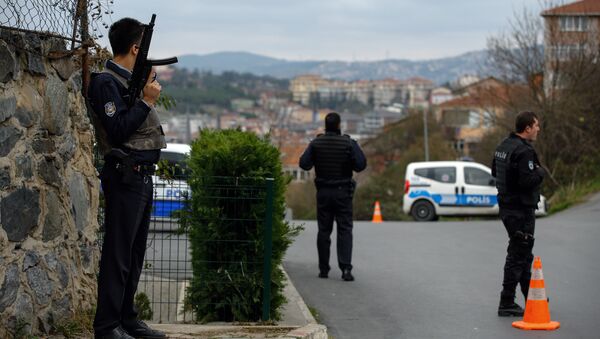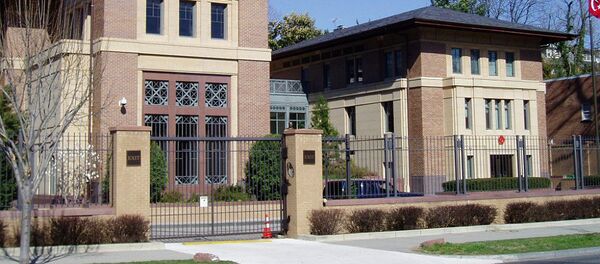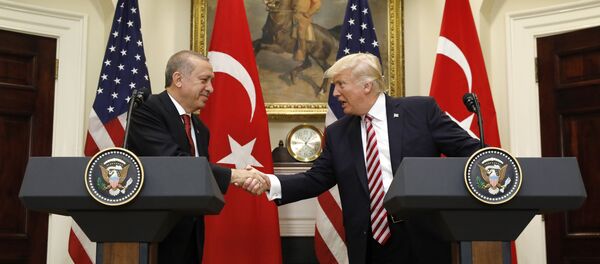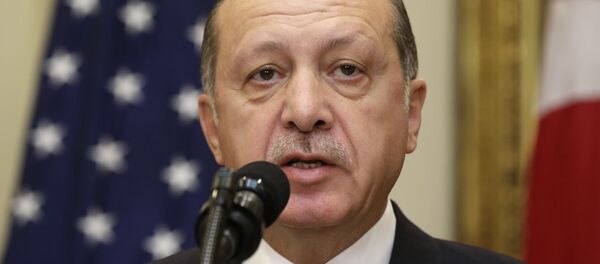"This is certainly the biggest crisis in US-Turkish relations, I've seen," Gareth Jenkins, an Istanbul-based security analyst with the Central Asia-Caucasus Institute and the Silk Road Studies Program, told Radio Sputnik commenting on the countries' mutual decision to suspend non-immigrant visa services.
Jenkins admitted, however, that tensions had already been simmering between Ankara and Washington for more than a year.
He drew attention to the case of Reza Zarrab, an Azeri-Turkish businessman who was arrested in the US on March 19, 2016 charged with money laundering and helping Iran to bypass US sanctions against Tehran.
On the other hand, some Turkish and American citizens had been detained on espionage charges in Turkey during the last year, Jenkins noted referring, in particular, to the February arrest of a US consulate translator who was accused of having ties with the Kurdistan Workers' Party (PKK), designated as a terrorist organization in the country.
According to Turkish media, Topuz is accused of undermining constitutional order, espionage and an attempt to overthrow the country's government.
It was in response to Topuz' arrest that the United States mission in Ankara suspended visa services in Turkey on October 8.
"Recent events have forced the United States government to reassess the commitment of the government of Turkey to the security of US mission and personnel," the official statement said.
Ankara immediately mirrored Washington's move, halting all non-immigrant visa services regarding American citizens in the US.
Ankara's Political Hostage Taking?
Commenting on the motivation behind the arrests of the US consulate employees in Turkey, the security analyst alleged that Ankara could have been seeking to take political hostages in order to liberate Reza Zarrab.
The crux of the matter is that the Zarrab case may also cast a shadow on the Turkish government, most notably the country's president, Recep Tayyip Erdogan, Jenkins explained.
"Turkey is desperate to get Zarrab before [the US] begins an investigation into Erdogan," the analyst surmised.
In this context it appears that the arrest of an American priest, Rev. Andrew Brunson, who has worked as a Christian missionary in Turkey for the past 23 years, was also politically motivated, he noted.
In October 2016 Rev. Brunson was thrown in a Turkish jail charged with membership of an armed terrorist organization.
About a year later, on September 28, 2017 Erdogan offered to exchange Rev. Brunson for Gulen while delivering a speech at his presidential palace.
"The impression the Turks have been given is that they are taking people hostage for an exchange, because they are so desperate trying to get Zarrab and Gulen," Jenkins stressed.
Amid Tensions With US, NATO Erdogan Seeking to Boost His Rates
Besides damaging relations with Washington, Ankara's moves are likely to have a negative impact on Turkey's position within the NATO bloc, he alleged.
Currently, the Turkish leadership has a lot of problems with the US, with Germany and "lots of things in the country that are not going well," the analyst said.
In addition, although Erdogan was strongly opposed to the Kurdish independence referendum that took place on September 25 in Iraqi Kurdistan, and "threatened to do a lot of things" against Erbil, "he has done nothing so far at least," Jenkins highlighted.
"[Therefore] I think that there is the possibility that Erdogan may try to do something very hard in Syria for his domestic audience, and that might not be to Russia's interest," the analyst concluded.





